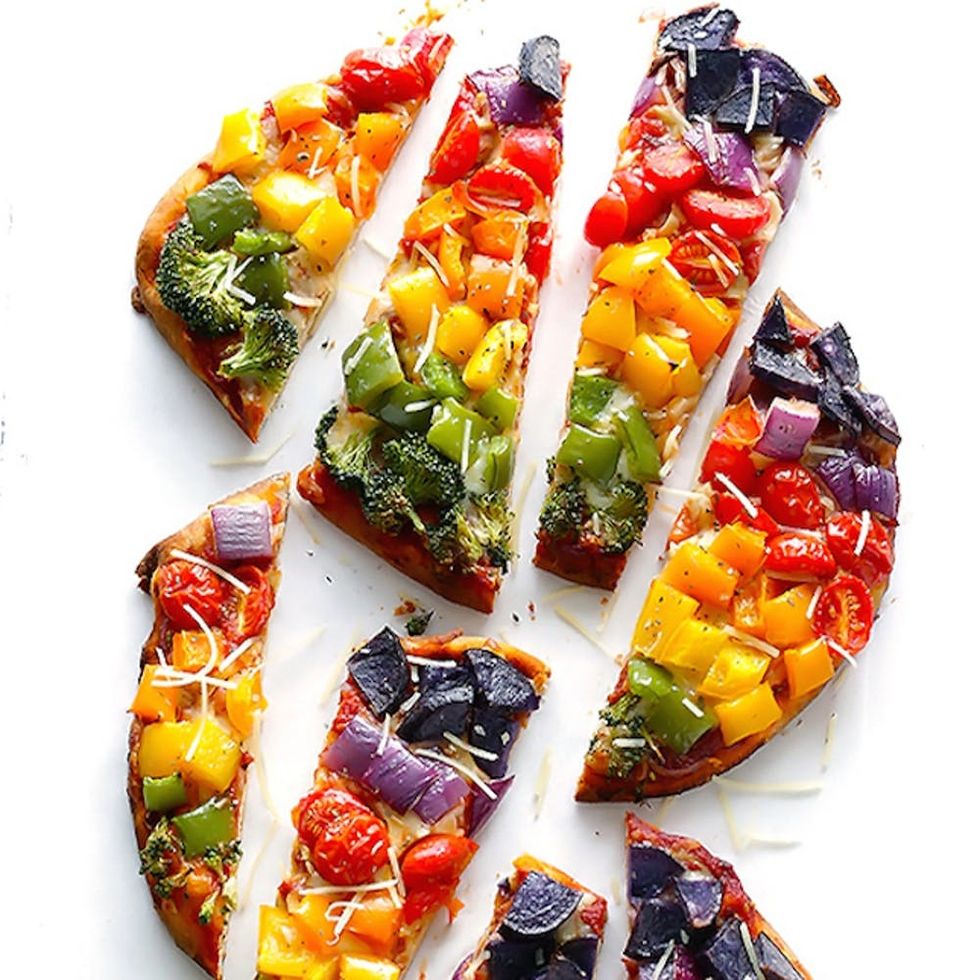The Importance of Vegetables in a Toddler’s Diet
How to get toddler to eat veggies? Vegetables play a crucial role in a toddler’s diet, contributing significantly to their overall health and development. Full of essential nutrients, vitamins, and minerals, vegetables help ensure that toddlers grow up strong and healthy. For instance, vegetables like carrots and sweet potatoes are rich in Vitamin A, which supports good vision and immune function. Leafy greens such as spinach provide iron, essential for cognitive development.

Moreover, integrating a variety of vegetables into a toddler’s diet can promote lifelong healthy eating habits. Starting early helps toddlers become accustomed to the flavors of vegetables, making them more likely to enjoy these nutritious foods as they grow older. However, many toddlers are hesitant or outright reject vegetables, often due to their unfamiliar textures or bitter flavors compared to sweeter tasting foods.
Understanding this resistance is key to finding ways to make vegetables a regular part of their meals without stress or force. Strategies such as presenting vegetables in fun shapes, involving toddlers in meal preparation, and consistently offering vegetables without pressure can gradually increase their acceptance. Persistence is crucial, as repeated exposure can help decrease a toddler’s natural neophobia – the fear of new foods.
It’s essential not to underestimate the importance of vegetables in a toddler’s diet, even if incorporating them proves challenging at times. With patience and creativity, you can help your toddler appreciate and enjoy the wide range of flavors and benefits that vegetables offer.
Exploring the Reasons Why Toddlers May Reject Veggies
Many toddlers turn away from veggies, and understanding why can help address the issue. To start, toddlers naturally prefer sweet tastes, which they’ve enjoyed since infancy through breast milk or formula. Veggies often lack this sweetness and can taste bitter, making them less appealing.
Toddlers also experience something known as ‘neophobia,’ a fear of new or unfamiliar foods. This instinctive caution can make them reluctant to try veggies that have different textures or colors.
Children’s taste buds are still developing, and their sensitivity to certain flavors can make veggies taste stronger to them than to adults. Combined with their limited past experiences with food, this can lead to quick rejections of vegetable offerings.
Furthermore, the way veggies are presented can influence a toddler’s willingness to try them. Large or oddly shaped pieces may be intimidating. Toddlers might also follow parents’ eating behaviors, so a lack of enthusiasm for veggies from parents can affect their stance.
Lastly, if toddlers sense stress or pressure to eat their greens, it might backfire. Toddlers seek autonomy and may resist eating veggies if they feel they’re being forced.
By keeping these reasons in mind, parents can tailor their approach to make veggies more appealing to their little ones. Offering a variety of veggies, preparing them in fun and easy-to-eat formats, and eating them together as a family can start to turn the tide. And remember, patience is key – it may take many exposures before a toddler starts to warm up to veggies.

Parental Influence and Creating Positive Associations with Veggies
Parents play a crucial role in shaping their toddler’s dietary habits, especially when it comes to veggies. By adopting a positive and enthusiastic attitude towards vegetables, parents can influence their toddlers to view veggies as enjoyable and interesting. Here are some practical ways to create positive associations with veggies:
- Lead by Example: Toddlers often mimic their parents’ behavior. If they see you enjoying veggies, they’re more likely to try and enjoy them too. Make a conscious effort to show excitement and satisfaction when you eat vegetables.
- Incorporate Veggies into Favorite Meals: Introducing vegetables as part of dishes your toddler already loves can help change their perception. For instance, adding finely chopped veggies to spaghetti sauce or topping a pizza with colorful vegetables can make them more appealing.
- Use Positive Reinforcement: Praise your toddler each time they try a new vegetable, regardless of whether they like it or not. Avoid using force or negative expressions if they reject a vegetable. Instead, maintain a cheerful tone and encourage them to try just a little.
- Create Fun and Engaging Stories Around Veggies: You can make veggies more appealing by associating them with fun stories or characters your toddler likes. For example, referring to broccoli as ‘tiny trees’ that their favorite superhero eats to gain strength can spark interest.
- Offer Choices: Give your toddler a sense of control by letting them choose which veggies to eat each day. This can make them more enthusiastic about trying and accepting vegetables as part of their meals.
By utilizing these strategies, parents can significantly influence their toddler’s attitude towards vegetables. Over time, these positive associations can help ease the inclusion of vegetables into a toddler’s diet.
Ways to Introduce Veggies to Toddlers Without Force
Introducing vegetables to toddlers can be a challenge. However, with the right techniques and a gentle approach, you can encourage them to try and even enjoy veggies without any force. Here are several ways to achieve this:
Start Small and Simple
Begin with tiny portions. Small bites are less daunting. Offer one vegetable at a time. It’s less overwhelming.
Involve Them in Cooking
Let toddlers help in the kitchen. Washing veggies can be fun. They might taste what they cook.
Make Food Fun
Serve veggies in playful shapes. Use cookie cutters for fun. Create colorful veggie characters.
Mix Veggies with Favorites
Add veggies to foods they like. Try finely grated carrots in pasta. Mix peas with rice.
Eat Together as a Family
Model veggie eating at meals. Let them see everyone’s plates. Make eating veggies a family habit.
Offer Choices
Give toddlers a say. Let them pick veggies at the store. They’re more likely to eat chosen foods.
Praise Efforts, Not Outcomes
Cheer any attempt to try veggies. Focus on the trying. Don’t worry if they don’t like it instantly.
Stay Patient and Consistent
Keep offering veggies regularly. Don’t give up if they refuse. It often takes many tries.
By introducing veggies without force, you’re setting the stage for a lifetime of healthy eating habits. It’s about creating positive experiences around vegetables and being patient as your toddler grows and explores new flavors.
:max_bytes(150000):strip_icc()/5120515-db8c547dacce475bbff7a93d72032fb2.jpg)
Creative Recipes to Incorporate Veggies for Toddlers
Introducing vegetables to toddlers through creative recipes can make the process fun and engaging. Here are some recipe ideas:
Veggie-Packed Smoothies
Kids love smoothies! Blend spinach or kale with fruits like bananas or berries. It’s tasty and nutritious.
Colorful Veggie Pizzas
Let toddlers decorate their own pizzas with vegetables. Use bell peppers, tomatoes, and mushrooms for a colorful meal.
Savory Vegetable Muffins
Sneak in grated zucchini or carrots into muffin batter. Toddlers might not even notice the veggies.
Sweet Potato Pancakes
Make pancakes healthier with mashed sweet potatoes. They add sweetness naturally, so less sugar is needed.
Fun-Shaped Veggie Nuggets
Create nuggets from mixed veggies and bake them. Use cookie cutters to make fun shapes.
Cheesy Veggie Pasta
Mix pureed cauliflower or butternut squash into cheese sauce. Combine with pasta for a familiar, cheesy dish.
Veggie Omelettes or Frittatas
Chop up bell peppers, spinach, or tomatoes. Add them to eggs and cook up a delicious omelette or frittata.
Rainbow Veggie Skewers
Thread a variety of colorful vegetables onto skewers. Serve with a tasty dip to encourage trying new flavors.
By presenting veggies in these attractive and delicious ways, kids may grow to like them as part of their meals. Remember to keep trying, even if they refuse a dish once. Turn veggie time into a fun culinary adventure!
The Role of Persistence and Patience in a Toddler’s Veggie Journey
Getting a toddler to accept veggies can be a lengthy process. Persistence and patience play vital roles in helping toddlers familiarize themselves with vegetables’ taste and texture without negative associations. Here are a few actionable steps that can aid in this journey:
- Offer Veggies Often: Consistently include vegetables in meals and snacks. It might take several presentations before a toddler starts showing interest.
- Maintain a Neutral Reaction: If a toddler rejects a vegetable, stay calm. Don’t force them to eat it, but don’t give up offering it in the future either.
- Role Model: Eat vegetables yourself and show enjoyment. Seeing an adult relishing vegetables encourages toddlers to try them too.
- Repeated Exposure: Familiarity can reduce a toddler’s initial rejection. Serve veggies in various ways over time to make them more accepting.
- Focus on Small Wins: Celebrate even the minor victories, like when a toddler tries a small bite. Encouragement can go a long way.
Remember, patience is key while introducing veggies to toddlers. Avoid turning meal times into battles. The aim is to make positive associations with veggies, ensuring toddlers feel comfortable and curious about trying them. Keep the vibe positive and keep trying. With time, there’s a good chance they will begin to accept and even enjoy their greens.
Using Play and Imagination to Make Veggies Appealing
Turning vegetables into a fun part of your toddler’s day can transform their attitude towards them. Here are some imaginative ways to make veggies appealing:
Use Fun Names
Give veggies fun, catchy names like “Magic Trees” for broccoli or “Power Sticks” for carrots. This can spark your toddler’s curiosity and interest in eating them.
Create Veggie-Based Stories or Games
Invent stories where veggies are the ‘heroes’ saving the day. Or, set up a simple game where eating a veggie takes them one step closer to a pretend treasure.
Involve Them in Veggie Art
Let your toddler use vegetables as ‘paintbrushes’ or make faces on plates using sliced veggies. It’s a creative and engaging way to interact with vegetables without the pressure of eating them.
Grow Vegetables Together
If possible, plant some vegetables at home. Watching them grow can pique your toddler’s interest. They might even be excited to taste what they’ve helped to grow!
Visually Appealing Arrangements
Arrange veggies on the plate in colorful patterns or shapes that catch your toddler’s eye. Sometimes, a visually appealing plate can entice them to explore and taste.
Through these playful methods, vegetables can become fascinating and enjoyable. Remember, the goal is to associate veggies with fun and positive experiences, gradually breaking down resistance.
Addressing Common Concerns and FAQs about Toddlers and Veggies
When it comes to toddlers and veggies, parents often have concerns and questions. To offer guidance, let’s address some common questions with simple answers.
Why won’t my toddler eat veggies?
Toddlers may reject veggies for a few reasons. They naturally prefer sweet tastes and might find veggies bitter. Their experience with food is limited, and they often resist new textures and flavors. Also, veggies look different from their usual favorites. Remember, it’s normal for toddlers to be cautious with new foods.
Should I hide veggies in my toddler’s food?
Hiding veggies isn’t the best long-term strategy. It can lead to mistrust around food. Instead, try introducing veggies in their whole form or mixed into favorite dishes without making them undetectable. This way, toddlers learn to appreciate and recognize veggies.
How many times should I offer veggies before giving up?
Don’t give up too soon. It can take 15-20 times or more before a toddler starts to accept a new veggie. Keep offering them regularly, in small amounts, and in different ways.
Is it bad if my toddler doesn’t eat veggies every day?
Aim for balance. If your toddler skips veggies one day, it’s okay. Keep offering veggies daily and they are likely to start including them in their diet eventually.
What if my toddler only eats one or two types of veggies?
That’s a start! Keep offering a variety of veggies, but it’s fine if they have favorites. Over time, they may grow more open to trying new ones.
By addressing these common concerns and FAQs with patience and understanding, you can help your toddler develop a healthy relationship with veggies. Remember, persistence is key!



